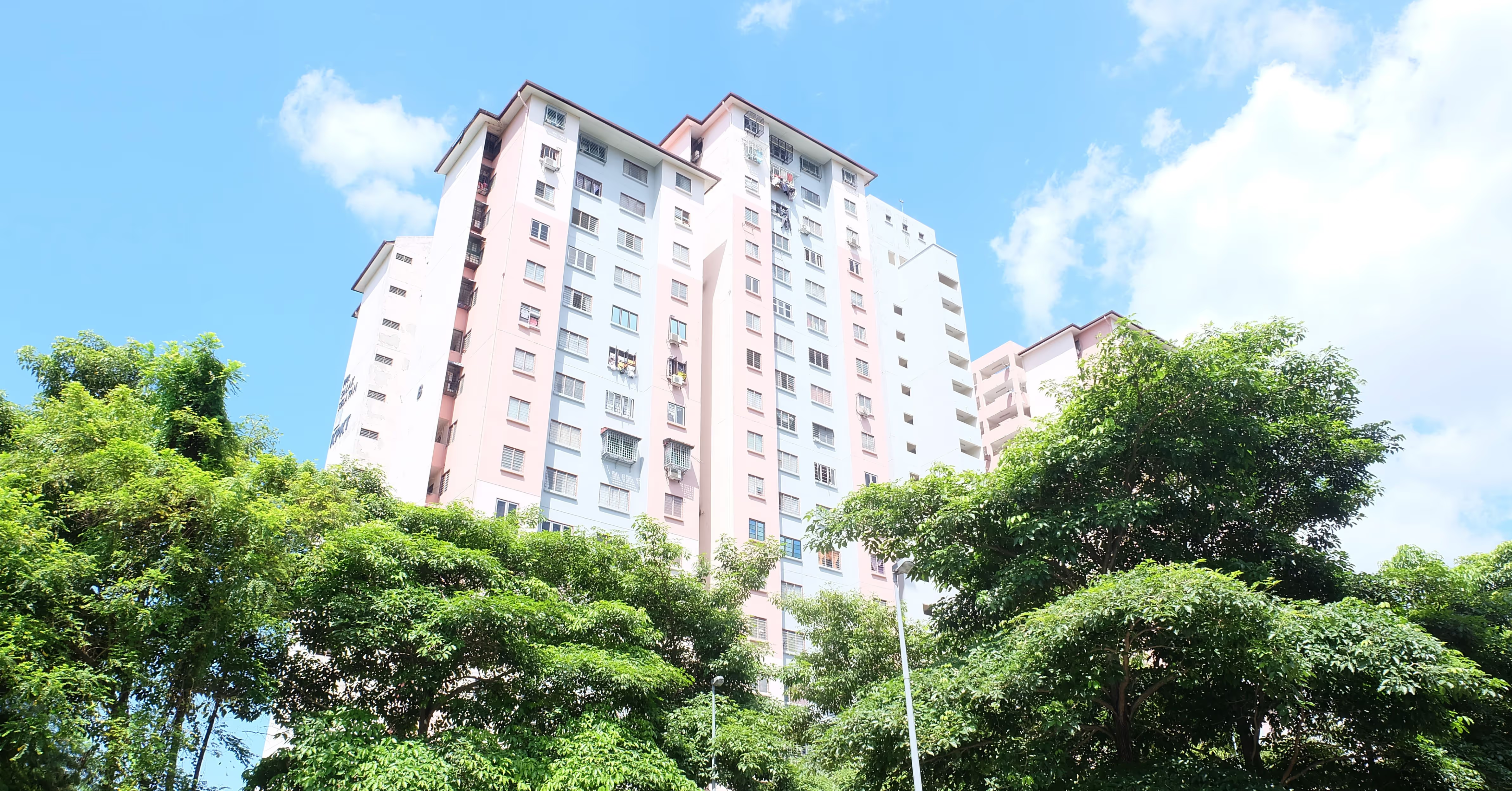
Introduction
Social housing programs, such as the Program Perumahan Rakyat (PPR) and Projek Perumahan Awam (PA), provide housing assistance for low-income households who are unable to afford shelter through other means. These programs serve as temporary housing solutions, with the expectation that tenants will transition to other housing options once they have achieved a sufficient level of income and improved financial situation.
Rental fees for social housing are heavily subsidized, typically ranging from RM124 to RM250 per month, lower than the prevailing market rental rates. The aim is to ease the financial burden of low-income households, particularly those in extreme poverty, by reducing housing costs and allowing them to focus on other essential expenses. Findings from KRI’s report titled “Decent Shelter for the Urban Poor: A Study of Program Perumahan Rakyat (PPR)” in 2023 reveal that over 60% of social housing residents earn below the poverty line, highlighting the critical role of social housing in supporting vulnerable groups.
Despite the lower rental rates, rental arrears remain a major challenge for many local councils governing social housing. Several local councils have reported accrued rents in millions of ringgits. For instance, the Seremban City Council recently reported RM1.8 million in rental arrears, while DBKL has long faced this issue, with outstanding rent accumulating to RM31.5 million. Although authorities have issued multiple reminders, recent actions—such as removing doors from tenants’ units—have sparked debate on whether such measures are ethically appropriate from a social perspective. Thus, this article addresses the rent arrears and subletting issues and recommends policies to improve the management of the social housing sector.
The rental fee: source of revenue for local councils
Rental collection by local councils is critical, as these monthly payments serve as an important source of revenue for managing the social housing sector. The rental collection helps cover basic maintenance costs alongside the annual budget allocation for social housing maintenance, thus ensuring decent living conditions for tenants. It also serves as an additional source of funding for constructing more social housing units.
However, local authorities have raised concerns that current social housing rental rates—which remained unchanged for decades—are too low to cover rising maintenance costs. For example, tenants at PPR units pay RM124 in monthly rent, while DBKL reports that basic maintenance alone costs RM250 per unit—double the rent collected. This does not include major repairs such as fixing broken lifts or replacing burst pipes and water tanks, which can exceed RM300 per unit each month.
While the lack of scheduled maintenance is a separate issue not explored in this Views piece, escalating rental arrears further depletes limited maintenance funds, straining social housing maintenance efforts. This, in turn, contributes to the deteriorating living conditions in social housing buildings, as highlighted in KRI’s study on the social housing sector.
Local councils reported that some tenants have lived rent-free for years, accumulating thousands or even tens of thousands of ringgits in unpaid rent. For example, DBKL previously reported that more than half (52.5%) of its 40,000 PPR and PA tenants were in rental arrears, with some owing over RM23,000 in unpaid rent for nearly 16 years. Similarly, the Seremban City Council reported cases of tenants with rental arrears ranging between RM17,000 to RM34,000, which resulted in strict enforcement, like issuing tenancy termination notices after months of not responding to multiple reminders from the local council.
Is forced eviction an ethical move?
While local authorities have all the rights to enforce evictions, it is important to first assess the circumstances that justify such actions, including drastic measures like cutting off the water supply or removing doors. Authorities should seek to understand why tenants default on rent and provide them with an opportunity to explain their situation. In practice, local authorities have been lenient, issuing multiple reminders, holding one-to-one discussions, and allowing sufficient time before taking strict enforcement measures.
However, if financial hardship is the main reason for non-payment, strict enforcement may be unethical and inappropriate. Some tenants have irregular incomes, are retired, are unable to work due to health reasons, or are struggling financially. In such cases, local councils should explore ways to assist them, such as guiding them in seeking support from welfare agencies or NGOs to cover rent. Forcing eviction in these situations goes against the fundamental purpose of social housing—to provide shelter for the urban poor. Pushing these tenants onto the streets would worsen their living conditions, and efforts should be made to prevent such outcomes.
On the other hand, strict enforcement is justified when tenants are found subletting their units to third parties. Social housing units are government assets and a limited resource, with thousands of eligible households on waiting lists. Tenants should not profit from these units at the expense of those in genuine need. There have been cases where tenants sublet their units at higher rates between RM600 and RM800—five to six times higher than the current PPR rent. In doing so, they profit more than the local councils while depriving deserving households of social housing. Subletting is a legal offense and should not be encouraged. In such instances, strict enforcement is necessary to ensure that social housing benefits those who truly need it.
Solution: Periodic updates on the household registry and create an exit policy
Social housing should be seen as a government management responsibility rather than merely a construction effort focused on the number of units built. Effective social housing policies should include proper screening of eligible households and regular maintenance of housing units.
A key policy recommendation from KRI’s social housing research is the improved management of PPR households. Managing tenants is just as important as maintaining social housing units. Issues such as rental arrears and subletting often arise due to a lack of regular monitoring. Establishing a household registry would enhance the management of PPR households by tracking tenant eligibility and housing needs, thus helping to prevent these challenges.
A well-structured household registry should go beyond income-based eligibility criteria. It should capture residents’ demographic and economic profiles, including factors such as household size, physical disability, and other vulnerabilities to ensure that social housing is allocated to those with the greatest need.
While local councils should already maintain tenant databases, it is crucial to institutionalise periodic updates every two to three years. These updates should assess tenants’ continued eligibility for social housing and reflect changes in their socio-economic status, as practiced by Singapore’s Housing and Development Board (HDB). In addition to household income levels, updates should also consider the cost of living and private rental prices in the area to support more effective housing management.
Moreover, exit policies should also be introduced to facilitate the transition of tenants who no longer qualify but remain in social housing due to expensive rental rates in the private market. Thus, it is suggested that local authorities develop an exit policy that incorporates demand-side subsidies, such as housing allowances or vouchers, to provide more affordable options for these households.
By maintaining an up-to-date household registry and implementing well-designed exit policies, local authorities can ensure that social housing is allocated fairly and efficiently. This approach will help improve the overall management of social housing and ensure that assistance reaches those who need it most.















.avif)